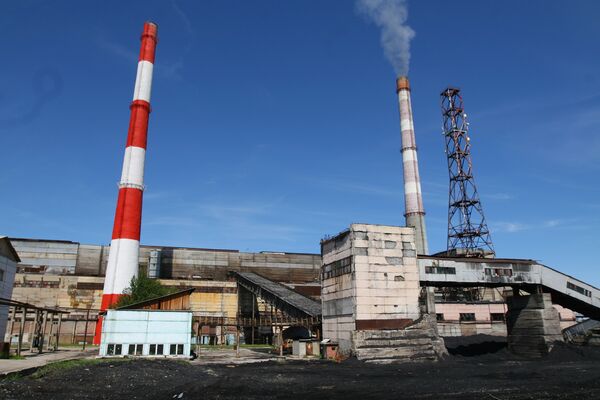An investigations committee has launched a probe on how two workers died of alleged suffocation at the Baikal Pulp and Paper Mill in Siberia, a senior aide from the regional investigations committee said on Wednesday.
The press service of the local prosecutor's office says ammonia poisoning is seen as the likely cause of death.
"According to a preliminary autopsy report, the workers died of ammonia poisoning. A special commission is being formed to investigate this industrial accident," prosecutors said.
Earlier on Wednesday, the plant's general director, Konstantin Proshkin, said two workers who were installing scaffolds at the mill suffocated after inhaling chlorine vapors on Tuesday.
"I can confirm that two workers died while installing scaffolds at the mill. The preliminary cause of their deaths has been identified as asphyxiation," Proshkin said.
The mill has long been criticized for its hazardous impact on the environment and health.
The mill reopened in February after Prime Minister Vladimir Putin signed a resolution excluding the production of pulp, paper and cardboard from the list of operations banned in the Baikal nature reserve.
A public campaign to close or convert the Baikal Pulp and Paper Mill, built in 1966 on the shores of the world's largest freshwater lake, became one of the symbols of Glasnost, the "openness" policy proclaimed by Soviet leader Mikhail Gorbachev in the late 1980s.
It involved the nation's leading statesmen and literary figures and forced the Soviet government to promise a halt to pulp production by 1993.
The collapse of the Soviet Union in 1991 delayed the implementation of that decision, and it was only in October 2008 that the plant switched over to a closed water cycle, preventing the discharge of waste into the lake, which is a UNESCO World Heritage Site.
However, the new regime proved unprofitable and the plant was forced to shut down for more than a year.
IRKUTSK, August 18 (RIA Novosti)




